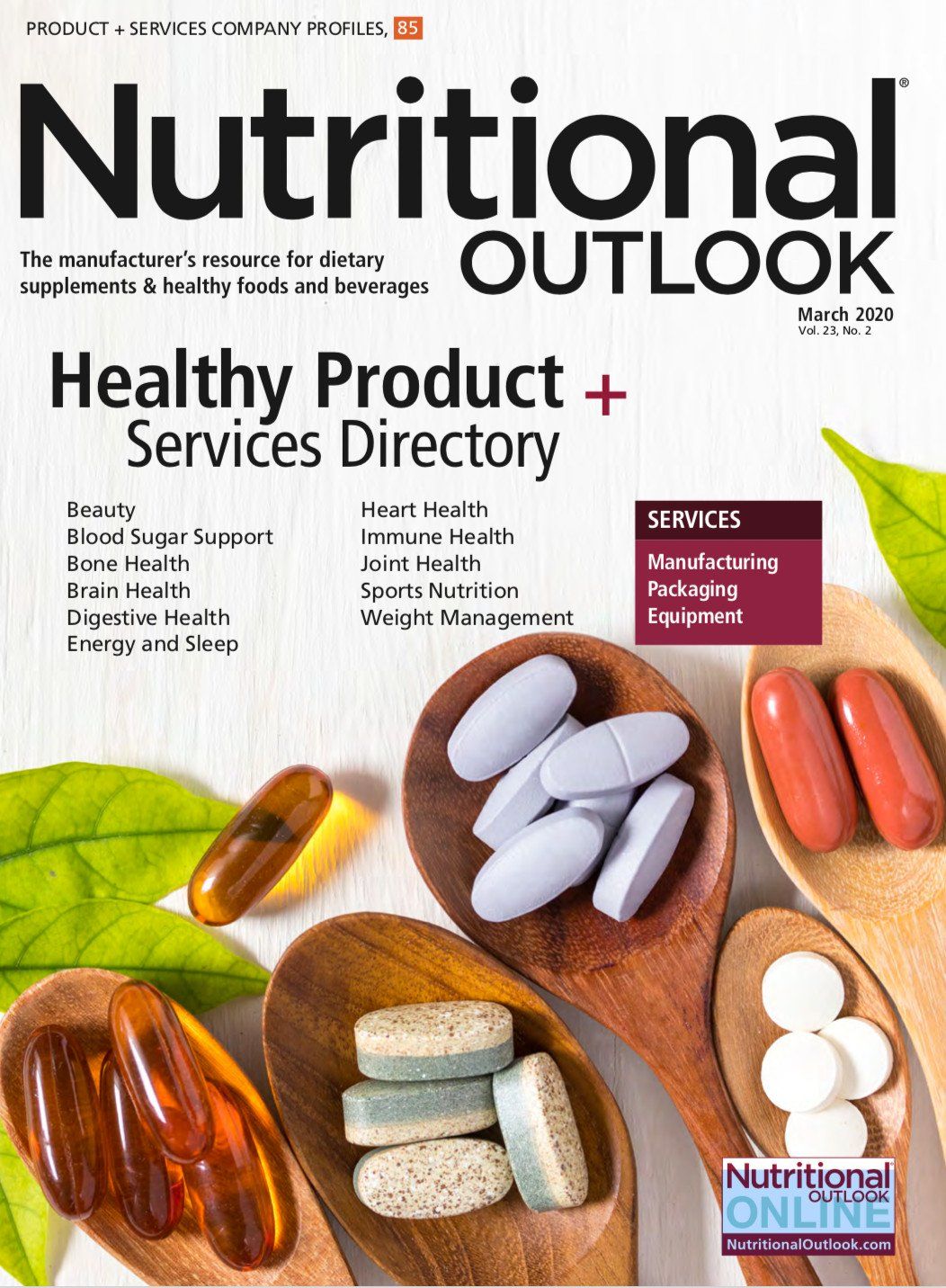Heart health: A crowded, competitive, and niche market for supplements
Heart health is a solid category where natural solutions have found fertile ground for the last several years. But it is also crowded and very generic.
Photo credit © DragonImages - Stock.adobe.com

Heart health is a solid category where natural solutions have found fertile ground for the last several years. But it is also crowded and very generic. That’s why there is a lot of movement to be more specific about a heart health product’s benefits, as well as find new angles for innovation.
Offering a sobering view of the market, Julian Mellentin, director, New Nutrition Business, says, “Heart health is arguably the most-crowded and competitive of all benefit platforms. The benefit of heart health is offered directly and indirectly by a massive array of products stretching across all categories. In heart health, whatever proposition you develop-no matter how good its science-is in competition with a wealth of ‘regular foods’ that consumers and the media perceive as heart healthy. These include oats, olive oil, dark chocolate, whole grains, almonds, pistachios, blueberries, and many, many others. This competitive reality has helped keep heart health brands in a niche.”
Still, heart health remains one of the top reasons why overall supplement users take supplements. “This reason is especially popular among supplement users aged 55+, with heart health being the third most popular reason for taking dietary supplements in this age bracket,” says Nancy Weindruch, vice president, communications, Council for Responsible Nutrition (CRN; Washington, DC).
In the mass-market retail channel, the top three ingredients for heart health as of October 6, 2019, according to market researchers SPINS and IRI, were fish oil, psyllium, and CoQ10. However, the only categories of the top 10 ingredients listed in this market under “cardiovascular health” that posted gains compared to the previous year were psyllium (which grew 0.5%) and CoQ10 (ubiquinol; which grew 15%).
In the natural retail channel, the top three ingredients for heart health were CoQ10, fish oil, and garlic. Those posting gains in the natural channel’s cardiovascular category were garlic at 5%, red yeast rice at 1%, magnesium at 4%, and resveratrol at 9%.
Most top 10 ingredient categories across both channels were in the red, indicating a stagnating and/or declining market from previous years. That being the case, omega-3s and CoQ10 continue to hold the top positions in terms of market share.
Among consumers, according to CRN’s 2019 Consumer Survey on Dietary Supplements, usage of omega-3/fatty acid supplements has remained steady over the past five years. “Historically and currently, omega-3s are most popular in the 55+ age category,” says CRN’s Weindruch. “Omega-3/fatty acids are in the top five most popular supplements taken by men. In fact, the number of men who take omega-3/fatty acid supplements has grown by four percentage points over the last year.”
Mellentin also believes nutrients like omega-3s are among those likely to keep the heart health category afloat for years to come, among others.
“Ingredients like walnuts or almonds have strong epidemiological data showing their cardio-protective effects, which helps to strengthen the ‘naturally heart healthy’ beliefs around whole foods,” he says. “Ingredients like omega-3, beta-glucan, phytosterols, CoQ10, and lycopene dominate the heart health supplement category. It will be difficult for emerging ingredients to challenge ingredients like omega-3s, which have been studied since the 1970s.”
Omega-3 Drugs Dominate Recent Headlines
The omega-3 market has had its share of ups and downs. In 2019, there was a mix of news related mostly to the publication of several high-profile studies. Indeed, REDUCE-IT1, VITAL2, and ASCEND3 were the studies that kept on giving when it came to headlines.
All published about a year ago, new findings generated from these studies continue to shine a light on omega-3s EPA and DHA, especially with regard to heart health.
Most recently, Amarin’s Vascepa EPA ethyl ester drug stunned the world in the REDUCE-IT1 study by showing its extraordinary ability to reduce the risk of cardiovascular (CV) events by 30%, an achievement a cholesterol medication could only dream of.
This prompted FDA in mid-December to expand label-claim approval for Vascepa for the secondary prevention of cardiovascular events, claiming that it would “…give patients with elevated triglycerides and other important risk factors, including heart disease, stroke, and diabetes, an adjunctive treatment option that can help decrease their risk of cardiovascular events.”
However, the wave omega-3 drugs were riding abruptly crashed in January of this year when two other omega-3 drug makers, AstraZeneca and Acasti, reported the clinical trial results of Epanova (a fish-oil based EPA/DHA drug) and CaPre (a krill oil–based drug), respectively. The STRENGTH trial was halted because Epanova didn’t show a likelihood of cutting LDL cholesterol when combined with a statin for patients at risk of heart disease due to high levels of LDL (or bad) cholesterol. At the same time, Acasti reported that its krill oil drug failed to sufficiently perform better than placebo in terms of reducing triglyceride levels.
In the meantime, although a full-scale direct-to-consumer marketing campaign for Vascepa is well underway, many analysts continue to question its future due to intellectual property concerns.
In light of these recent studies and reports, it is important to keep things in perspective. Fish, dietary supplements, and pharmaceutical omega-3s all have an important role to play in delivering omega-3s to support heart health. But at the end of the day, if health outcomes are the goal, then it will always come down to dose, regardless of how these omega-3s are delivered.
The Omega-3 Index: A Tool for Growth
Another aspect of heart health that will likely come into play for 2020 and well into the future is the importance of knowing one’s Omega-3 Index. This is simply a measurement of the omega-3s EPA and DHA in red blood cell membranes, and it has the potential to hold more weight than measuring cholesterol as a risk factor for heart disease, according to William S. Harris, PhD, the inventor of the test.
Originally proposed more than 15 years ago by Drs. Harris and his colleague Clemens von Schacky, the Omega-3 Index has since been featured in more than 200 studies, including some of the largest in the world like the Framingham Heart Study and the Women’s Health Initiative Memory study, both of which included thousands of subjects.
With a risk factor that can be easily modified (i.e., one just needs to consume more EPA and DHA to raise their Omega-3 Index), this test is particularly attractive to doctors who want to assess risk for their heart patients. Stakeholders hope that the Omega-3 Index will one day become the standard of care like a cholesterol or CRP test. Lending credence to the importance of measuring omega-3 levels was a statement4 released late last year by the International Society for the Study of Fatty Acids and Lipids (ISSFAL) relating to the importance of omega-3 blood testing in research studies.
What this basically means is that any study looking to assess the benefits of omega-3s is heavily encouraged to measure omega-3 levels before and during the study in order to better correlate health outcomes. Similarly, consumers and practitioners should establish a baseline omega-3 blood level (i.e., Omega-3 Index) before deciding where to go next when it comes to strategizing when and how to adopt supplemental heart health strategies.
References:
- Bhatt DL et al., REDUCE-IT Investigators. “Effects of icosapent ethyl on total ischemic events: From REDUCE-IT.” Journal of the American College of Cardiology, vol. 73, no. 22 (Jun3 11, 2019): 2791-2802
- Manson JE et al., VITAL Research Group. “Marine n-3 fatty acids and prevention of cardiovascular disease and cancer.” New England Journal of Medicine, vol. 380, no. 1 (January 3, 2019): 23-32
- Bowman L et al., ASCEND Study Collaborative Group. “Effects of n-3 fatty acid supplements in diabetes mellitus.” New England Journal of Medicine, vol. 379, no. 16 (October 18, 2018): 1540-1550
- De Groot RHM et al. “ISSFAL Official Statement Number 6: The importance of measuring blood omega-3 long chain polyunsaturated fatty acid levels in research.” Prostaglandins, Leukotrienes, and Essential Fatty Acids. Published online November 6, 2019.

Prinova acquires Aplinova to further increase its footprint in Latin America
April 7th 2025Prinova has recently announced the acquisition of Brazilian ingredients distributor Aplinova, which is a provider of specialty ingredients for a range of market segments that include food, beverage, supplements, and personal care.

























